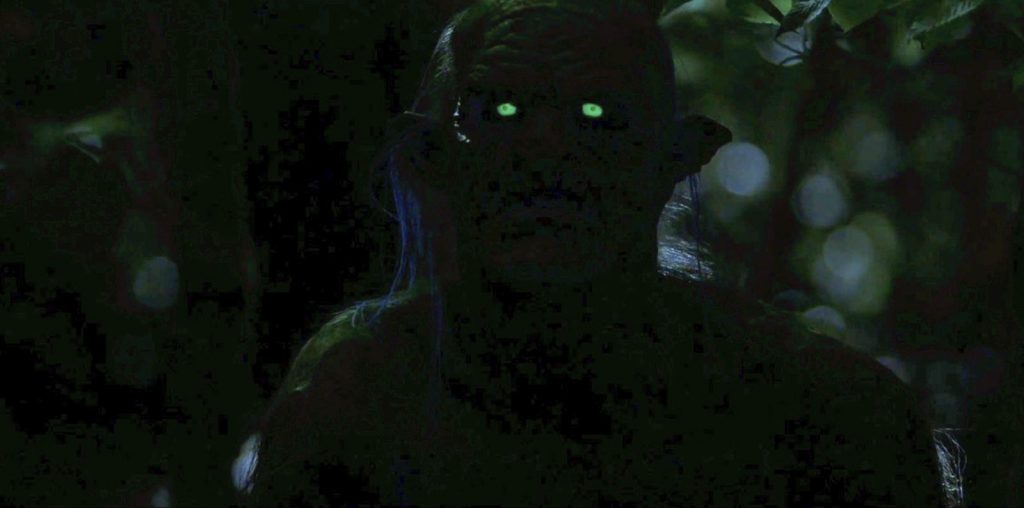
Few films have undergone a more prolonged gestation period than D.A. Pennebaker’s rock documentary “Ziggy Stardust and the Spiders from Mars.” Filmed during the July 3, 1973 final concert of David Bowie’s landmark “Ziggy Stardust” world concert tour, the film was in post-production until 1983 due to Pennebaker’s inability to achieve an adequate soundtrack mix. By the time the film was completed, it had only a few 16mm screenings set up by the filmmaker himself (mostly in American college towns) and then had a one-time TV broadcast on, of all things, ABC’s “Movie of the Week.” Plans for a late-1980s theatrical release were squashed when the film was given a quickie video release. Finally, three decades after the footage was shot, “Ziggy Stardust and the Spiders from Mars” is being theatrically released in a digitally remastered edition.
Yet despite its unusual history, “Ziggy Stardust and the Spiders from Mars” is not an entirely successful movie. Watching the film today, Bowie’s Ziggy Stardust persona can easily seem very quaint and perhaps a bit silly. The brouhaha from 30 years back about the glam rock trappings clearly overlooked one basic fact: although Bowie and his bandmates were tarted up in make-up, jewelry and androgynous clothing, there was absolutely nothing outrageous about the way they performed on stage. If anything, “Ziggy Stardust and the Spiders from Mars” is perhaps the straightest of straightforward concert films imaginable.
By the time Pennebaker filmed the concert, Bowie was ready to jettison the Ziggy Stardust persona he fashioned for himself. Indeed, during the show he blithely announces this will be his final live concert performance (and for years afterwards, Bowie seemed to keep Pennebaker at arm’s length as the filmmaker constantly sought his input to help finish the movie). Bowie’s readiness to move on to something else may account for the stiff and rather indifferent performance he gives during the first part of the concert, with juiceless renditions of “Wild Eyed Boy from Freecloud” and “Space Oddity.” Bowie and the film actually don’t come into full-force until the midway point, when his rendition of Jacques Brel’s intense “My Death” is punctuated when the audience crashes in by singing the final line, causing a startled Bowie to crack a spontaneous grin and issue a jolly thanks. After this unlikely intrusion, Bowie’s electric personality is at full charge as he vamps the audience and puts raw emotion into versions of his “Suffragette City” and “Rock ‘N’ Roll Suicide” and in covers of Lou Reed’s “White Light/White Heat” and the Rolling Stones’ “Let’s Spend the Night Together.”
As a concert documentary, “Ziggy Stardust and the Spiders from Mars” is something of a mixed bag. On the downside, Pennebaker and his camera crew have a strange habit of being in the wrong place: the picture is constantly being focused while Bowie and company are in full swing, or the camera is placed too far away to adequately capture the presentation, or the performers’ heads are sometimes lopped off by poor framing. The film also has so many cutaways to screaming and moaning teenage girls in the audience (and nary a man in camera range) that it is easy to imagine Pennebaker culled his reaction shots from a David Cassidy concert rather than a David Bowie show.
To its credit, however, the film has some rich backstage moments: a distracted Bowie, puffing on a cigarette, gets his make-up, jewelry and costumes applied by an army of nameless dressers; Bowie’s then-wife Angela, a life-size platinum blonde kewpie doll, exclaims breathlessly and joyously in a Melanie Griffith-style voice about the multitude of fans and limousines outside the theater; and a hirsute and chubby Ringo Starr chatting with Bowie as the latter prepares to get into yet another form-fitting gender-bender costume.
And, of course, there is the Bowie music. Even when the renditions don’t quite catch fire, the intelligence and maturity of Bowie’s work still challenges and captivates, and it is not difficult to overlook the film’s faults once the music begins. Whereas so many rock offerings of that era seem dated today, Bowie’s music remains timeless. Bowie fans who recall when “Ziggy Stardust” was still new and those who weren’t even born at the time can share in the vibrancy of the film’s soundtrack, which has been brilliantly remixed by Tony Visconti for this edition.
Through a stroke of brilliant scheduling, “Ziggy Stardust and the Spiders from Mars” is being released at the same time that Bowie’s latest album “Heathen” is being unveiled. Bowie fans who need a reason to celebrate the trajectory of the artist’s career can make use of this cinematic Alpha and CD Omega.

